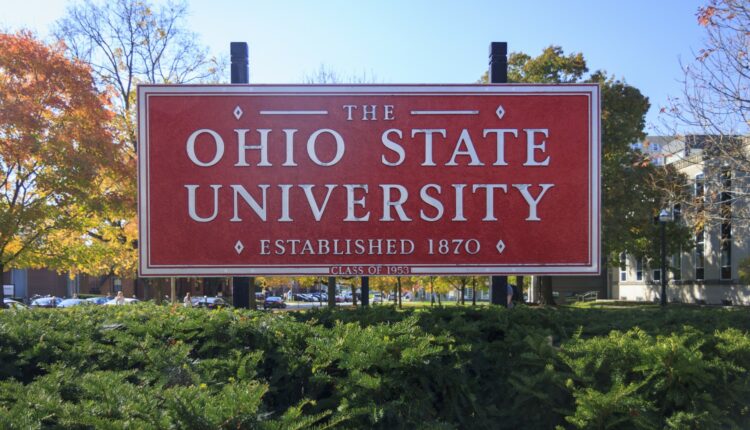Ohio State University PhD scholar’s research featured in state report
Part of the reason Anisa Kline chose to pursue a doctorate in geography at The Ohio State University was the practical nature of the research.
“The thing I love about geography is that it is literally grounded in place,” she said. “You’re talking about people and processes happening in a specific place. Everything happens somewhere.”
It is this focus on people, what they are doing and where they are doing it that led Kline, who received her PhD this year, to collaborate with the Ohio Commission on Hispanic/Latino Affairs. In 2022, the state published Kline’s research on Latino H-2A workers who travel to Ohio for work, specifically agricultural jobs.
“There is a real crisis in agriculture,” Kline said, referring to the labor shortage farmers across Ohio and the nation are facing. The H-2A Temporary Agricultural Program provides legal avenues for foreign-born workers to enter the United States to perform seasonal farm work. For her dissertation, she surveyed 285 male, Spanish-speaking H-2A workers throughout Ohio, to document the guestworker population and learn more about their lives and experiences in the state.
Many of the men come from the same state in central Mexico, Guanajuato, and the majority are fathers and husbands.
In addition, Kline said, 77% of the workers interviewed who returned for additional years of work chose the same farm.
“This is a stable workforce,” she said. “They come here year after year after year. They live here for as much as 10 months at a time, spending more time here than in their home countries. They’re part of our community.”
This is a key point that Kline hopes readers will take away from the report.
“I want people to understand that even though these workers are invisible to so many of us, they are part of our communities,” she said. “They are also a crucial part of our food chain, and we need to recognize that.”
Sometimes, Kline said, these workers are thought of as machines, simply part of our agricultural system. She included quotations from the workers interviewed throughout the report to remind readers of workers’ humanity.
“They have needs and they are sacrificing a lot to be here,” she said.
One of the needs that Kline’s research referenced is education. While some farms provide English classes, most do not. Many workers said they wish English classes were more accessible.
“I would finish an interview [in Spanish] and I would say, ‘Do you have any questions for me?’” she said.
“More than one person asked where they could take English classes.”
This was such a common response that the development of programs for H-2A workers to learn English is the top recommendation in the report. The other recommendations are assisting H-2A workers in obtaining driver’s licenses and helping them file their taxes, a process that can be confusing under the best of circumstances.
“We might as well make it better for everyone involved,” Kline said. “If it’s easier for them to get a license, the growers don’t need to drive them everywhere.”
While the national tensions around immigration sometimes make the H-2A program controversial, she thinks that reaction does not reflect the reality on the ground.
“This is workforce development,” she said. “This is responding to a real, indisputable, nonpartisan need in rural Ohio.”
Being able to contribute to a solution to the state’s agricultural challenges was a meaningful experience for Kline.
“It was thrilling,” she said. “From the beginning, I’ve wanted to do something that’s useful. To be approached to write this report, it was like being told ‘Yes, your work is useful.’ And that was so gratifying.”

